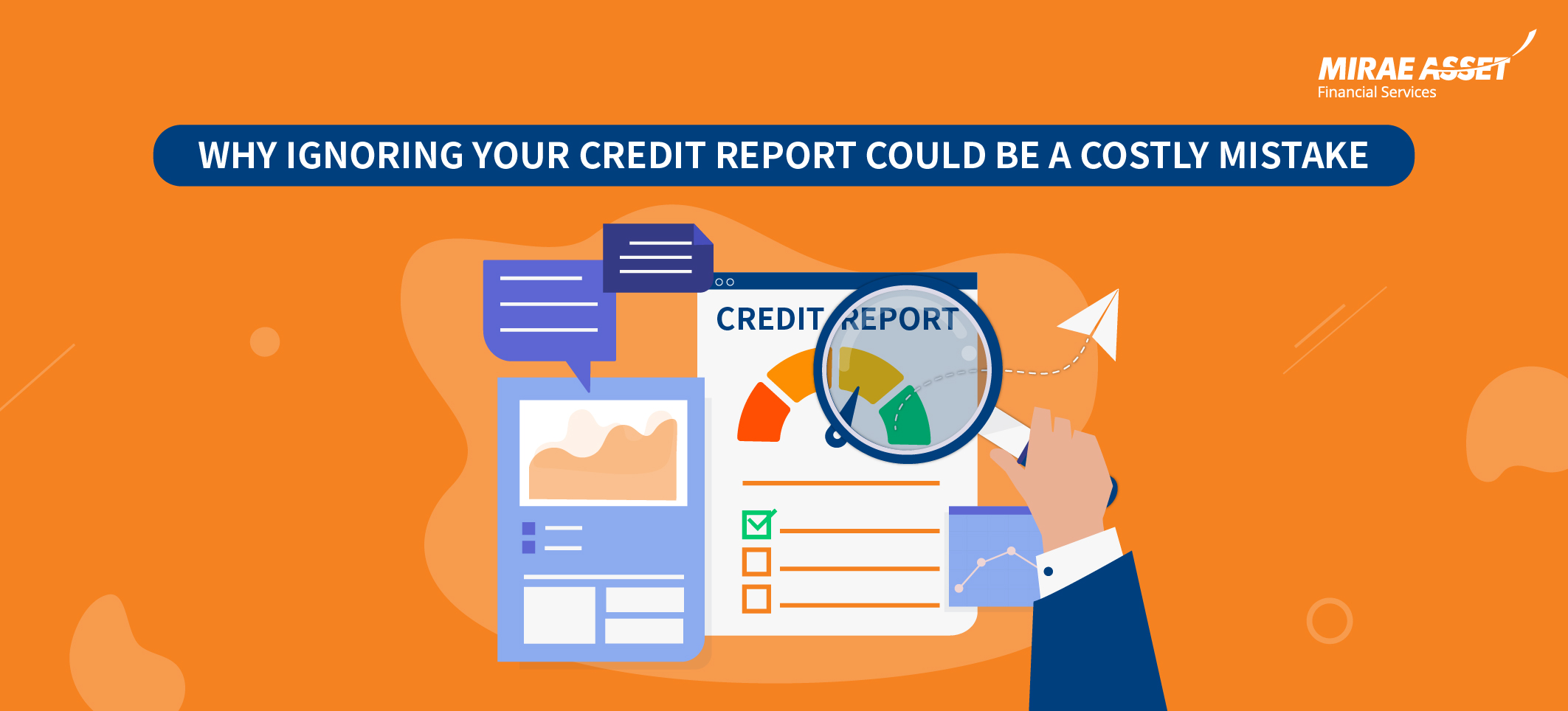Why Ignoring Your Credit Report Could Be a Costly Mistake

Picture this: You’ve spent years saving for your dream home, found the perfect property, and applied for a loan - only to face rejection. The reason? A small unpaid amount from years ago that you didn’t even remember existed.
This isn’t just a rare case. Many people assume that paying EMIs on time is enough to secure a loan. However, minor errors in your credit report, no matter how small it can lower your credit score, increase interest rates, or even lead to outright rejection.
What is a credit report?
A credit report is a detailed summary of your credit history prepared by a credit bureau. It shows how you've handled loans and credit cards in the past — including your repayment behavior, outstanding debts, and credit inquiries.
Lenders use this report not just to decide whether to approve your home loan, personal loan application or credit card application, but also to determine the terms of the loan — such as the interest rate, loan amount, and tenure — based on your creditworthiness.
A strong credit report can help you get loans faster and on better terms, while a poor one might lead to higher interest rates or rejection.

TO GET STARTED WITH YOUR PERSONAL LOAN APPLICATION
Why Your Credit Report Deserves Attention?
Most people check their credit score only when applying for a loan. But by then, it may be too late to fix potential issues. Your credit report is more than just a number; it’s a record of your financial behavior that lenders scrutinize before approving loans.
What could go wrong?
Even if you’ve always paid your bills on time, here’s what could go wrong:
- Old Dues You Forgot About – A small overdue amount from years ago could still impact your creditworthiness.
- Incorrect Loan Status – A loan marked as “overdue” instead of “closed” can hurt your score.
- Unreported Closed Accounts – Accounts you paid off might still be listed as active.
- Fraudulent Entries – Unauthorized loans in your name could indicate identity theft.
- High Credit Utilization – Using too much of your available credit, even if you repay on time, can lower your score.
How to read your credit report & spot errors
Checking your credit report isn’t just about the score, it’s about the details. A small error can lead to higher interest rates or outright rejection. Here’s a list of things to check:
- Check Loan & Credit Card Status – Ensure all accounts are correctly marked as active or closed.
- Verify Account Classification – Make sure that the accounts are labeled correctly as ‘Standard’ unless the accounts have been ‘Overdue’ or ‘SMA’. Even misreporting small unpaid amounts could impact on your future borrowing.
- Written-Off or Settled Loans – Ensure they are correctly reported
- Look for Unknown Accounts – If you find loans or credit cards you don’t recognize, report them immediately, they could indicate identity theft.
- Review Your Payment History – Ensure every EMI and credit card payment is correctly recorded.
- Ensure Proper Account Type – Mislabeled accounts (e.g., a personal loan marked as a business loan) can create issues.
- Check for Discrepancies in Credit Utilization – If your credit card usage is reported too high, it may be dragging down your score.
Fixing Credit Report Mistakes: A Step-by-Step Guide
If you find an error, take action immediately:
- Download Your Credit Report – Get a copy from credit bureaus like CIBIL, Experian, or Equifax.
- Identify Errors & Gather Proof – Find discrepancies and collect supporting documents (e.g., bank statements, loan closure letters).
- Raise a Dispute with the Credit Bureau – File a correction request through the bureau’s official website.
- Contact Your Lender – Inform the bank or financial institution about the error and request a correction.
- Monitor the Resolution – It typically takes 30-45 days to update your records. Follow up regularly.
- Check the Updated Report – Once resolved, verify that the corrections are reflected.
- Escalation – If the dispute remains unresolved, escalate the matter to the RBI Ombudsman or relevant grievance redressal authorities.
Make Credit Report Checks a Habit
Just like you track your expenses or investments, reviewing your credit report should be regular practice. Doing this can:
- Prevent Loan Rejections – Fix errors before they become a problem.
- Help You Get Better Loan Terms – A higher credit score can secure lower interest rates.
- Protect You from Identity Fraud – Spot unauthorized accounts before they cause damage.
- Give You Financial Confidence – Plan major expenses with clarity.

TO GET STARTED WITH YOUR PERSONAL LOAN APPLICATION
Take Control Before It’s Too Late
A small oversight today could cost you lakhs in higher interest or missed opportunities tomorrow. Checking your credit report regularly ensures that when you need a loan, you’re fully prepared. Don’t wait for a rejection, take charge of your financial profile today.
